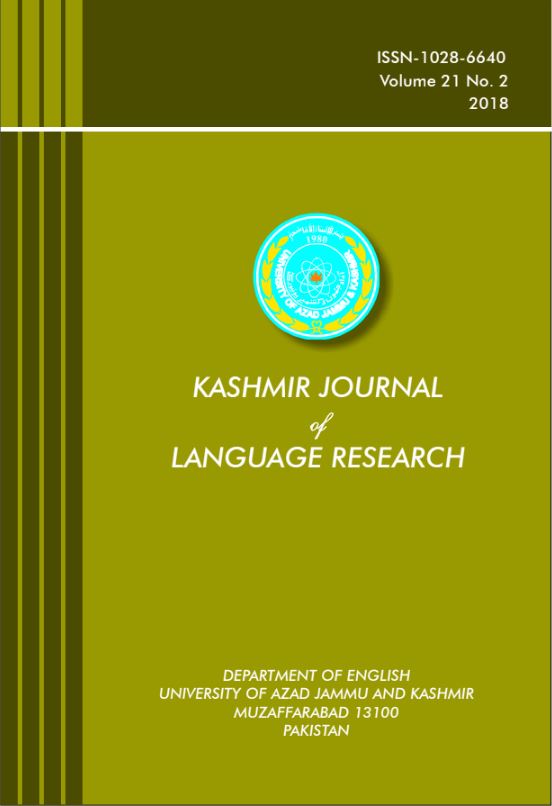Postmodernist and Cybernetics Deconstruction of Identity and Representation
A Socio-Cognitive Analysis of Post-cyberpunk Literature through Accelerando
Keywords:
Identity, Representation, Deconstruction, Cybernetics, Post-cyberpunkAbstract
The advancement in culture has made ‘Identity’ and its representation a complex phenomenon that is not static rather it has become more fluid and arbitrary. Literature has always given vent to human experiences through the depiction of life. Literature in the Postmodernist sense has become a valid source of production and subversion of socio-cultural constructions that has dismantled the Metanarratives by bringing Mininarratives into the center. Postmodernism has dismantled the center/margin distinction by deconstruction and reconstruction of identity through multiple simulations. The theory of Cybernetics has in fact made Postmodernism an object in the real sense to be witnessed in the form of Artificial Intelligence, Information Technology, Cyborg and Posthuman. The transition of Identity has become a repetitive aspect of an individual’s life. The Post-cyberpunk novel Accelerando (2005) by Charles Stross represents the contemporary technology-oriented societies and focuses the issues of identity and representation. The Socio-Cognitive analysis (van Dijk, 2008) has projected that the world of technological innovation has produced complexity and novelty in everyday life and has speed up the subversion of the Metanarratives into Mininarratives. Hence, identities are simulated and represented in unique perspectives, which has made race, gender, religion, human/machine, natural/artificial, physical/nonphysical, real/virtual, life/death contestable and fluid phenomena, thus none of the identities remain authentic in the arena of cybernetic realism. The findings of the research have highlighted the deconstruction of various power structures based upon the socio-cultural parameters of representations. The power structures that use to provide vent to the Metanarratives of control whether through gender, religion and race etc. are no longer acceptable in the Postmodernist perspective.

Downloads
Published
Issue
Section
License
Copyright (c) 2021 Kashmir Journal of Language Research

This work is licensed under a Creative Commons Attribution 4.0 International License.




